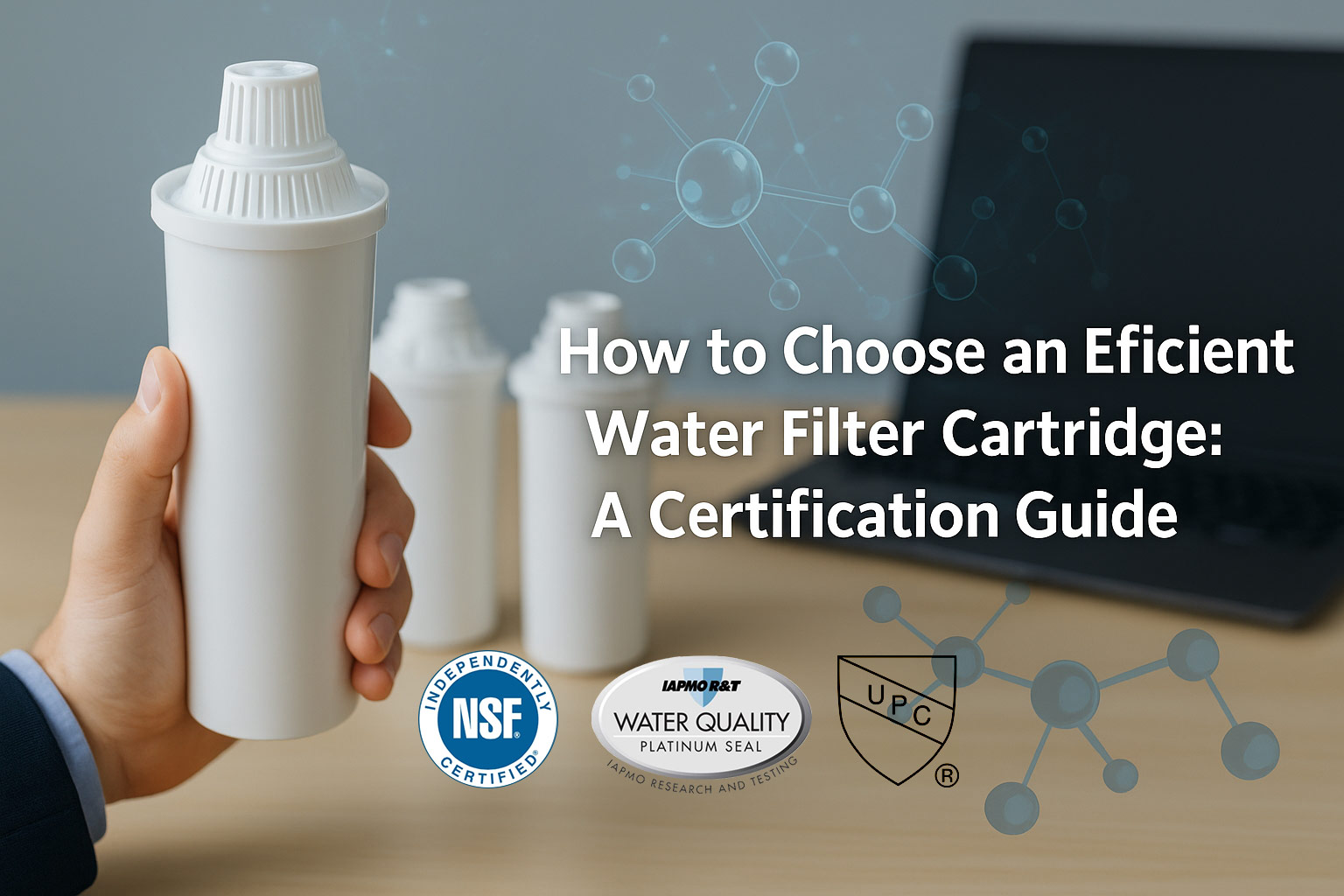When sourcing water filters or entire systems, B2B buyers—such as wholesalers and large procurement teams—need to focus on both performance and compliance. Certifications not only prove quality but also influence market acceptance, pricing, and trust. Below are key steps to select an efficient, certification-backed filter for your business.
1. Check for NSF certified water filters
Always prioritize filters with NSF certification, such as NSF/ANSI 42, 53, and 401. According to industry standards, NSF certification is “the gold standard in the industry” for eliminating contaminants like chlorine, lead, VOCs, and emerging pollutants. Only filters with verified NSF marks guarantee you meet health and regulatory expectations.
2. Work with an OEM water filter manufacturer
Partnering with a reputable OEM water filter manufacturer ensures you can customize branding, packaging, and even filter media. OEMs typically support NSF testing and mold development. This flexibility is essential if you have specific design or market compliance requirements.
3. Seek out wholesale water filter suppliers
If you’re buying in volume, you’ll improve margins by ordering from trusted wholesale water filter suppliers. High-quality suppliers offer competitive pricing, but also support bulk sample testing to ensure performance aligns with NSF standards before committing to large orders.
4. Consider long-term NSF 53 certification plans
Filters certified with NSF 53 address serious health threats, such as lead, PFAS, and VOCs, and they appeal to discerning end-users . Although NSF 53 testing is more intensive, the result often justifies premium pricing and opens doors to stricter-regulation markets like North America and Europe.
Why Certifications Matter in B2B Sourcing
-
Regulatory compliance: Many commercial and institutional buyers require NSF certification.
-
Market trust: A certified filter builds confidence from buyers and their end-customers.
-
Premium positioning: Certified filters command higher prices and appeal to quality-conscious channels
Best Practices Before You Purchase
· Request certificates—Ask for official NSF test reports for the specific product model.
· Test flow rate & capacity—Verify performance specs match both NSF and your market’s expectations.
· Start with samples—Evaluate real-world performance before full-scale orders.
· Clarify MOQ and lead time—Ensure the OEM supplier offers both flexibility and reliability.
Conclusion
When evaluating water filter suppliers, prioritize NSF certified water filters sourced from a reliable OEM water filter manufacturer. Look for those who offer wholesale water filter deals and support NSF 53 certification for serious contaminant reduction. This strategy ensures you get a product combination of reliability, customization, and ROI potential across headquarter and distribution levels.
Would you like help identifying OEM partners with NSF-certified water systems or filters? I’d be happy to assist!
